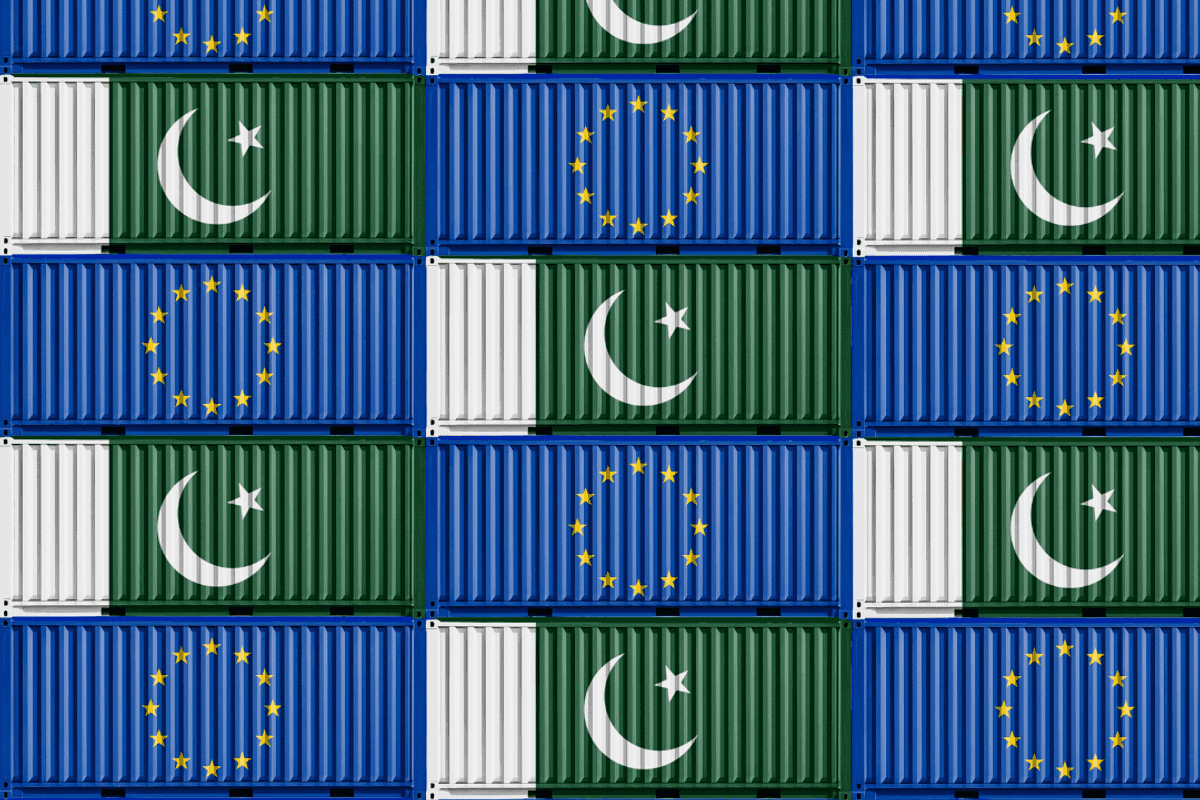Pakistan-EU partnership: A data-driven look at the economic impact of GSP+
After years of tariff battles and shifting supply chains, Pakistan is reshaping its trade strategy
Nida Gulzar
Research Analyst
A distinguished economist with an M. Phil. in Applied Economics, Nida Gulzar has a strong research record. Nida has worked with the Pakistan Business Council (PBC), Pakistan Banks' Association (PBA), and KTrade, providing useful insights across economic sectors. Nida continues to impact economic debate and policy at the Economist Intelligence Unit (EIU) and Nukta. As a Women in Economics (WiE) Initiative mentor, she promotes inclusivity. Nida's eight 'Market Access Series papers help discover favourable market scenarios and export destinations.

Pakistan’s trade with the European Union remains a central pillar of its external commerce. In FY25, Pakistan’s export earnings to the EU reached $8.8 billion, marking a 7.4% increase over the prior year.
Pakistan’s heavy reliance on textiles
Pakistan’s export profile to the EU remains heavily concentrated, with textiles accounting for about 70% of total exports in 2024. Other notable products include rice, leather goods, and plastics, but their combined share remains relatively small. This concentration is largely driven by the GSP+ scheme, which has enabled Pakistan to export a wide range of goods, especially textiles and clothing, at reduced or zero tariffs, fueling growth in these sectors.
To reduce vulnerability and enhance resilience, Pakistan can diversify its export base by focusing on higher-value products such as engineering goods, pharmaceuticals, processed food, and man-made fibers, while also upgrading standards and compliance to meet evolving EU market requirements.
GSP+ and its economic impact
High eligibility
Because of the GSP+ scheme, 89.5% of Pakistan’s exports qualify for preferential tariff access to the EU market, significantly lowering entry costs and boosting competitiveness.
Preference utilization rate
With a preference utilization rate of 87.9%, most of Pakistan’s exports are already benefiting from GSP+ duty reductions, underscoring the scheme’s pivotal role in sustaining and expanding EU-bound trade.
As a result, Pakistan’s exports to the EU have consistently increased over the years, rising from $5.1 billion in 2015 to $8.9 billion in 2024, making it the largest beneficiary among all GSP+ countries.
Most of the concentrated export basket (over 70% of textiles and textile articles) benefit from duty-free access under GSP+ arrangements (81.8% of tariff lines eligible under the textile sector).
Pakistan’s trade with the EU is still heavily dependent on textiles, leaving it exposed to changing demand, rising costs, and new regulations. The EU granted Pakistan GSP+ status in 2014, allowing duty-free or reduced-tariff access that now accounts for over 30% of exports to Europe.
The scheme, extended until December 31, 2027, remains vital, but retaining it requires compliance with 27 conventions and navigating stricter standards, customs delays, and the EU’s upcoming carbon border adjustment mechanism (CBAM). With exports rising in FY25, Pakistan must now diversify beyond textiles and strengthen quality, infrastructure, and green compliance to secure long-term trade growth.
Diversifying beyond textiles
Pakistan’s theoretical export potential to the EU is estimated at around $17 billion, as per Nukta’s findings. Among the top products with the highest untapped opportunities are milled and broken rice, terry articles, and medium oils, with the top 10 products alone offering potential worth about $6.17 billion in 2024.
This underscores a critical policy question: what combination of institutional reforms and targeted strategies is needed to reduce Pakistan’s overreliance on textiles and unlock growth in high-value sectors within the EU market?
Credit rating and confidence boost
The newly appointed EU Ambassador to Pakistan, H.E. Raimundas Karoblis, met Federal Minister for Finance and Revenue Senator Muhammad Aurangzeb at the Finance Division last month.
During the meeting, the minister highlighted positive assessments from all three major global credit rating agencies, signaling renewed confidence from bilateral partners, including the EU. He added that business sentiment is improving, and the government is stepping up efforts to facilitate investors and attract long-term, sustainable capital into key sectors of the economy.
FDI still modest despite expanding trade links
EU investment in Pakistan remains modest, with total FDI stock at just €0.1–0.2 billion in 2024 far below inflows from China, the UAE, or the U.S. Overall FDI fell 22% in the first two months of FY26 to $364 million, led by power ($157 million) and financial ($110 million) sectors, while European capital remains limited beyond niche projects such as EIB-funded water, sanitation, and upcoming rail and energy initiatives.
Persistent challenges, from regulatory uncertainty to macroeconomic volatility, continue to deter European investors and limit Pakistan’s integration into EU value chains.
Islamabad has pledged support by reviving the EU-Pakistan business forum, promoting investment in key sectors, and launching a €20 million “better governance and business environment” initiative under the EU’s global gateway and green deal to encourage sustainable, long-term engagement.







Comments
See what people are discussing